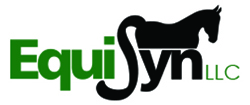
Have questions about Equine Assisted Learning or Equine Coaching? Here are some typical questions that are often asked about coaching. If you have additional questions that aren't answered, please reach out! We'll be happy to answer them.
-
Q?
How is coaching different from other service professions?
-
A.
Professional coaching focuses on the achievement of results based on goals set by the individual. Through the process of coaching, individuals focus on the skills and actions needed to successfully produce their personally relevant results. Unlike traditional therapy or counseling, working with a coach empowers the client. You already have the answers to all of life's challenges within you. The coach works with you to guide you to discover your path.
Here is a brief description that explains the basic differences of equine modalities.
Gestalt Equine Therapy:Practitioners of these models have been trained in the essentials of Gestalt therapy and the essentials of equine assisted psychotherapy. such as Equine Gestalt Coaching Method® (EGCMethod) and Gestalt Equine Psychotherapy (GEP).
Equine-Facilitated Psychotherapy (EFP):EFP is a type of experiential psychotherapy built around interactions with horses. Therapy must be applied by a provider who is trained and licensed (by their state) to practice psychotherapy or counseling. Also known as: Equine Assisted Psychotherapy, Equine-Facilitated Mental Health, Equine Assisted Counseling.
Equine-Facilitated Learning (EFL):EFL covers a wide array of social and emotional learning activities organized around horse experiences. EFL facilitators may be experienced educators, business consultants, personal coaches or certified in alternative health fields.
Therapeutic Riding (TR) (See Hippotherapy listed below):Mounted therapy in which people with disabilities ride horses to relax, and to develop muscle tone, coordination, confidence, and well-being.Therapeutic riding is most often provided by a riding instructor with special training, who in many cases will be under the direction of a hippotherapist. Long recognized as a therapy of tremendous benefit to children with disabilities such as cerebral palsy or Downs’ssyndrome, TR has now broadened and shows tremendous promise in treatment of autism, sensory integration disorders, language development and trauma recovery in children.
Hippotherapy:Physical, occupational and speech therapy treatment strategy that utilizes equine movement. Hippotherapy must be prescribed and provided by a trained and licensed physical, occupational or speech and language therapist. The foundation of sensorimotor integration established in hippotherapy can improve neurological function and sensory processing, which can be generalized to a wide range of daily activities.
-
Q?
How do I know if coaching is right for me?
-
A.
Since coaching is a partnership, also ask yourself if you find it valuable to collaborate, to have another viewpoint and to be asked to consider new perspectives. Also, ask yourself if you are ready to devote the time and the energy to making real changes in your work or life. If the answer to these questions is yes, then coaching may be a beneficial way for you to grow and develop.
-
Q?
What are the benefits of coaching?
-
A.
Individuals who engage in a coaching relationship can expect to experience fresh perspectives on personal challenges and opportunities, enhanced thinking and decision making skills, enhanced interpersonal effectiveness, and increased confidence in carrying out their chosen work and life roles. Consistent with a commitment to enhancing their personal effectiveness, they can also expect to see appreciable results in the areas of productivity, personal satisfaction with life and work, and the achievement of personally relevant goals.
-
Q?
How does the horse help with coaching?
-
A.
Horses have no hidden motives or agendas. They live in the present moment, and are always non-judgemental and honest. Working with the horses brings a powerful and satisfying experience to you, freely giving unconditional love and acceptance. You will be working with the horses on the ground, so there is no riding involved. You don't need to have any horse background to be able to experience the amazing ways horses help us heal.

